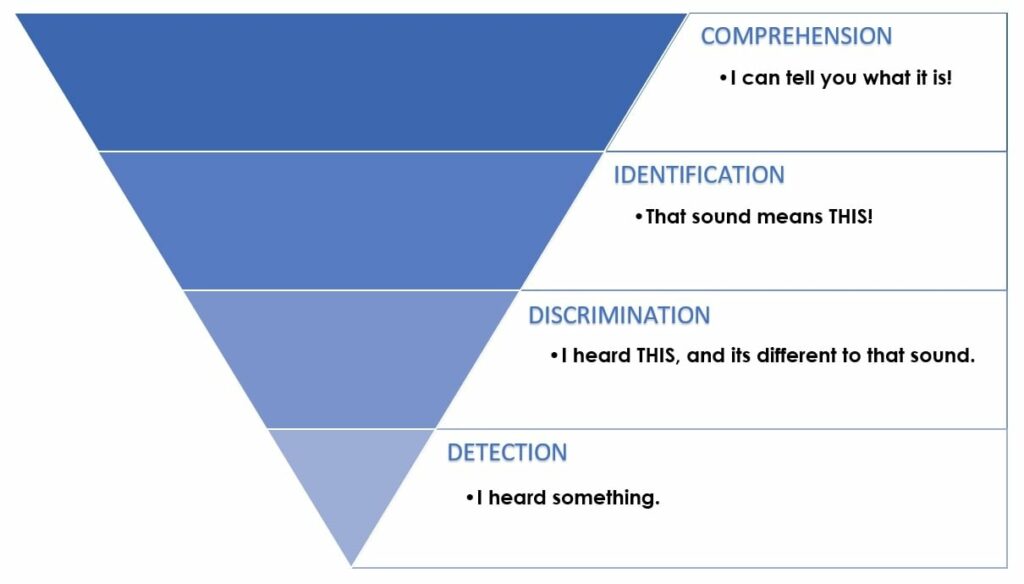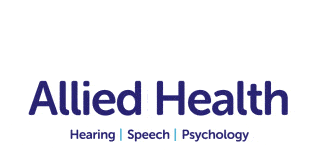Children’s Auditory Processing

Auditory Processing Assessment
Auditory Processing (AP) refers to how well we detect, discriminate and process auditory information. It is often thought of as the brainwork of hearing, or in other terms “what we do with what we hear”.
An Auditory Processing Disorder (APD) refers to an inability to make optimal use of what we hear. Children diagnosed with an APD typically have normal hearing and normal intelligence, however, have difficulties listening, particularly in the presence of background noise.
They hear but cannot make sense of what they have heard (the brain does not understand what it hears). Auditory processing disorders are estimated to effect between 3-5% of school aged children. This refers to approximately one child in every classroom. An APD can significantly impact a child’s academic progress, self-esteem, and confidence.
A qualified Audiologist is the recognised professional to diagnose a child with an Auditory Processing Disorder.
Behaviours typical for a child with an auditory processing disorder include:
- difficulties understanding speech in the presence of background noise (e.g., the classroom).
- frequent misunderstandings
- confuse similar sounding speech sounds
- respond slowly or inappropriately to questions
- difficulties remembering and following instructions
- frequently requesting information be repeated
- poor organisational skills and difficulty completing tasks
- generally, perform well 1:1
- easily distracted
- unable to maintain attention for appropriate amounts of time
- often exhausted and emotional at the end of a school day
- have difficulties with spelling and reading
As a result of the above behaviours some, but not all, children will have difficulties progressing academically. For example, a child with an APD may have not heard the complete instructions for a task and rather than spending time practicing the specific skill in the classroom they spend most of their time trying to work out what they are required to do.
Auditory processing assessments are available for children from 5 years of age.
Screenings are offered for children in preschool (kindergarten) to identify those who may be at risk for auditory processing difficulties. Early identification enables support for your child to be implemented as soon as possible.
At Little Allied Health the assessment of your child’s auditory processing abilities is based on Jack Katz’s Buffalo Model. Several tests are used which each examine a different part of your child’s auditory processing abilities. Depending on your child’s results, additional assessments may be used to further define their listening profile.
The Buffalo Model uses 4 categories to describe a child’s auditory processing profile. A child may present with difficulties in one or more categories.
Decoding: your child’s ability to process speech quickly and accurately. This is the most common difficulty found in children with an auditory processing disorder.
Children with decoding difficulties are typically slow to respond to questions asked, have difficulty with word finding and understanding what is said (receptive language). They may have trouble developing clear speech and present with phonic, spelling, and oral reading difficulties.
Tolerance Fading Memory: your child’s ability to understand speech in noise and to use their short-term auditory memory.
Children with tolerance fading memory difficulties have trouble understanding speech in noise or when someone else is talking. They are easily distracted, often anxious and many find it difficult to express their thoughts and ideas (expressive language) or to understand what they have read. Short term auditory memory difficulties are also common, with children struggling to remember what has been said. Children who have difficulties remembering and using information they hear can become quickly overloaded and often appear as if in a daydream.
Short term auditory memory refers to your child’s ability to keep information in their mind for a short period of time while they process it. Information is recalled in the same way in which it was presented (for example say cat, “cat”).
Auditory working memory involves short term auditory memory; however, more complex processing is required where your child does something with what they have heard. For example, rather than repeating the word “cat” your child is required to replace the “c” with a “b” and reply “bat”.
Auditory working memory is used to support many everyday activities such as listening, learning, reasoning, and comprehension.
Organisation: your child’s ability to maintain information heard in the proper sequence or order.
Children with organisation difficulties are often messy, they regularly lose things and have difficulty organising their thoughts and ideas.
Integration: your child’s ability to connect what they have seen and heard (integrate auditory and visual information).
Children with integration difficulties take a very long time to respond, and often have significant reading and spelling difficulties. Many children with integration difficulties meet the criteria for the diagnosis of a specific learning difficulty (namely dyslexia). Handwriting can be poor and parents of children with integration difficulties often report repeating a question before realising that their child is yet to answer.

Pre-Assessment Information Gathering
At Little Allied Health we like to gather information prior to meeting your child. Following the booking of your child’s appointment, our AP dedicated allied health assistant will contact you to discuss your child’s listening and learning behaviours. This also provides you with an opportunity to raise any concerns you may have but not want to discuss in front of your child. With your permission we will also contact your child’s teacher to gain a better understanding of your child’s behaviours in the classroom.
Initial Appointment
Auditory skills develop in a hierarchical manner. There are 4 levels of listening: Detection, Discrimination, Identification and Comprehension (Erber, 1984).
The first step is to make sure your child detects sounds well. This involves assessing your child’s hearing levels, middle ear health and inner ear (cochlea) function. Occasionally it may be recommended that your child be assessed by another medical or allied health professional prior to continuing.
The initial appointment takes between 45 minutes to 1 hour.
Diagnostic Appointment
The second appointment involves several listening games to help us learn more about your child’s auditory processing skills. Typically, children enjoy the assessment, however it can be tiring, and short breaks are provided. Having your child’s assessment split over two appointments minimises the effects that poor attention and poor motivation may have on your child’s results.
The second appointment takes between 1 and 1.5 hours depending on your child’s presentation. On occasion, more than one session may be required to gather a complete picture of your child’s auditory processing abilities. We will discuss this with you if this is required. If your child takes any medication, please make sure they keep taking it as usual, as we want to assess your child’s everyday listening abilities.
Your child’s results will be compared to those of other children the same age. A child is diagnosed with an Auditory Processing Disorder (APD) if their auditory processing skills are significantly behind other children their age on at least two of their assessments. Following you will be provided with a comprehensive written report highlighting your child’s auditory strengths and opportunities for development.
Management advice and recommendations will be included.
If your child is diagnosed with an auditory processing disorder, or if they are found to have any listening skills requiring support, Little Allied Health will develop a management plan specifically for your child and family. Management of auditory processing difficulties requires a multidisciplinary approach and must involve parents, teaching staff, allied health and medical professionals involved in your child’s care.
Our team of audiologists, speech pathologists and psychologists work collaboratively with you to provide a holistic approach to supporting your child.
This may include:
- auditory training to improve your child’s listening skills in a range of environments
- iPad applications that target specific auditory skills
- trial of a personal listening device (remote microphone)
- supporting your child’s teacher and school regarding classroom listening environments and strategies for children with APD
- speech pathology support for children with speech and/or language concerns
- literacy support
- educational assessments and psychology support for children showing slow academic progress, emotional or behavioural challenges
- referral to other allied health or medical professionals where indicated
Listening skills develop as the auditory system matures. We expect the auditory system to mature at around 12 years of age. Therefore, as in all areas of development some children are slower to develop than others. For some children their auditory processing skills will improve with age and for others they will continue to have listening challenges. For this reason, if your child has been found to have an APD, review of their auditory processing skills is generally recommended in 12 – 18 months.
The number of therapy sessions is dependent on your child’s presenting difficulties. To achieve optimal results our team may recommend a visit to your child’s school. This assists in maximising opportunities to support their skill development in the school environment and makes sure your child’s education team is supported. However, we strongly believe that therapy sessions conducted in clinic with parents are most beneficial in achieving long term outcomes. By joining in on therapy sessions you gain a much stronger understanding of strategies you can put in place in your daily life.
Do I need a referral to make an appointment?
You don’t need a referral to see the team at Little Allied Head. You may be able to access Medicare rebates with a referral, or if your child has a Team Care Arrangement. If you have access to funding through the National Disability Insurance Scheme (NDIS) we can provide services to self-managed and plan-managed clients. Speak to one of our friendly team to learn about the various funding supports available.

